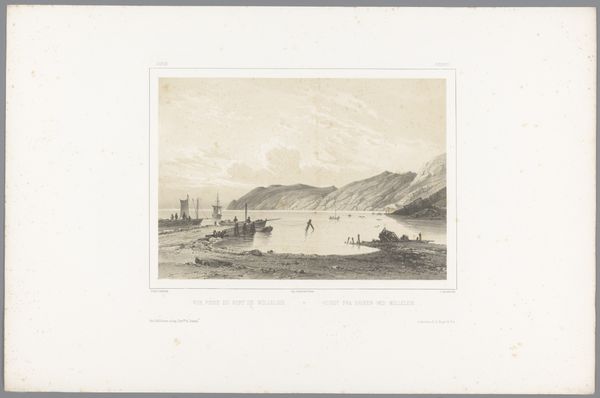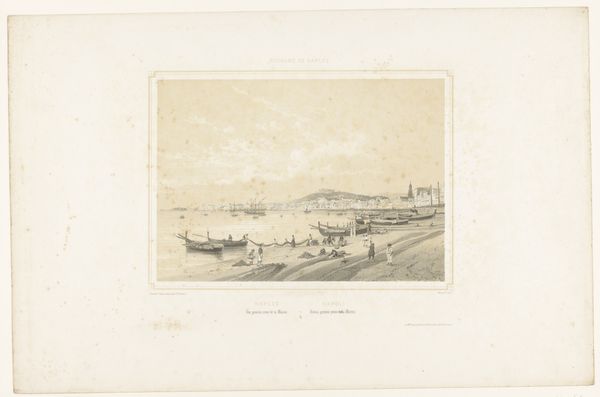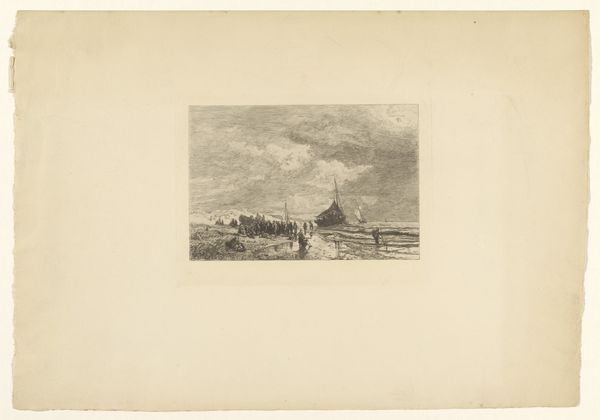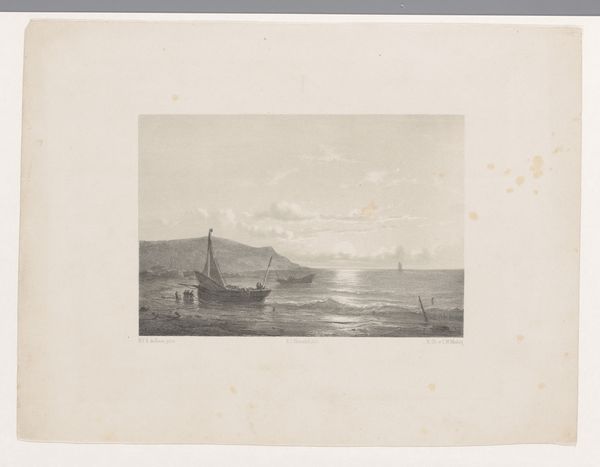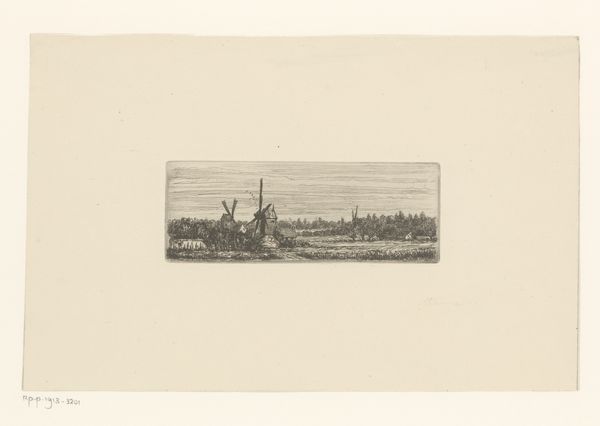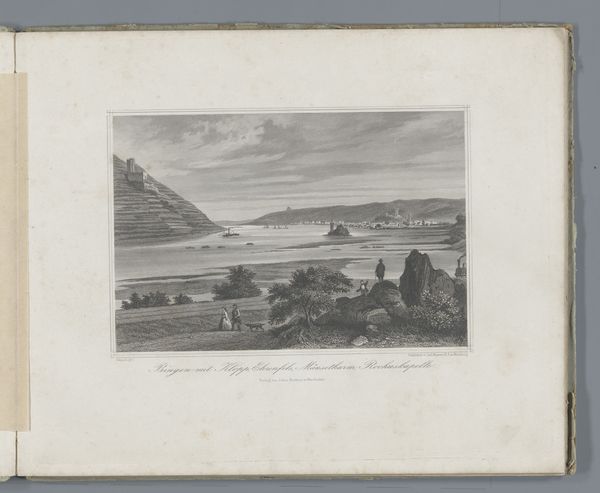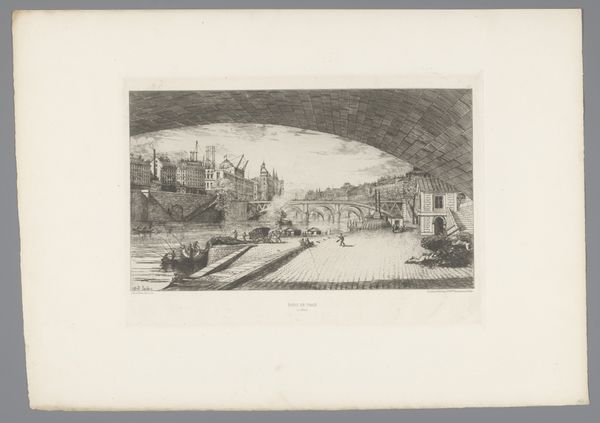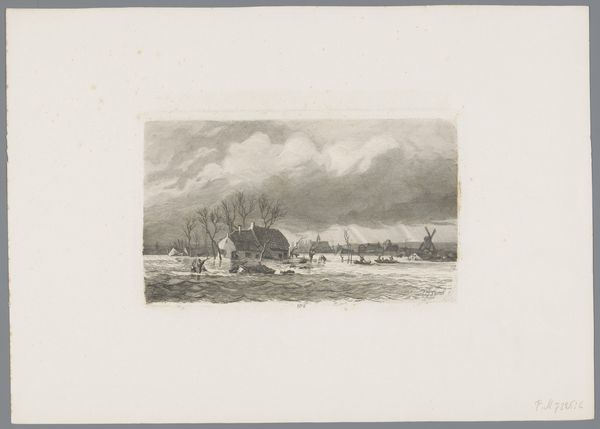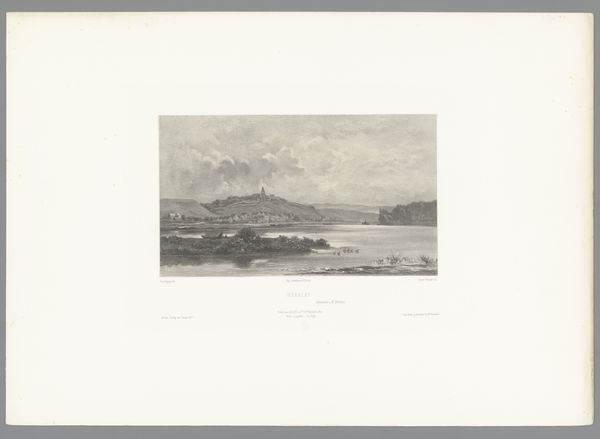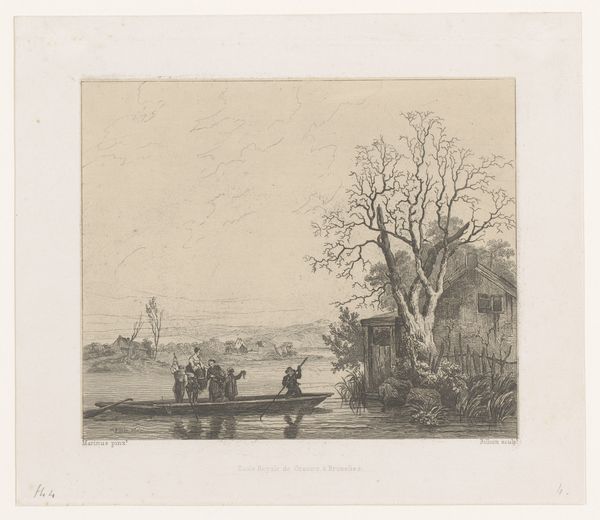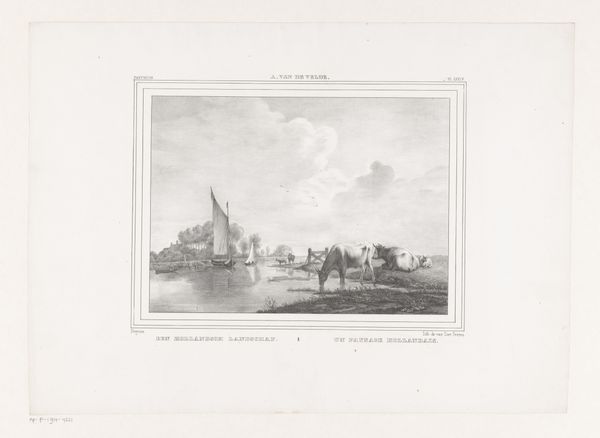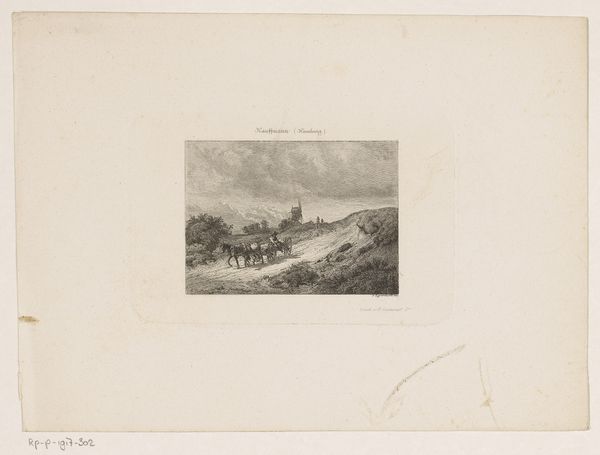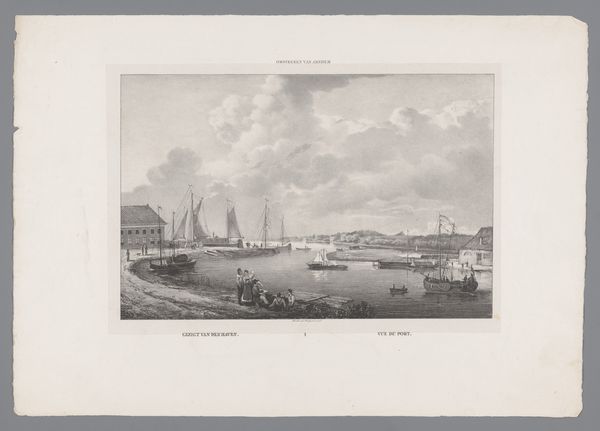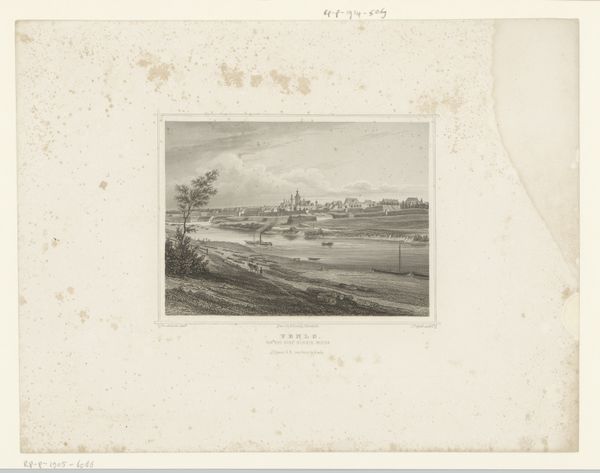
Dimensions: height 358 mm, width 550 mm
Copyright: Rijks Museum: Open Domain
Louis-Julien Jacottet made this print of Taarbæk beach. The scene presents a tranquil view of Danish coastal life; a humble village nestles against the water, with fishing boats and figures dotting the shoreline. To understand this image, we might ask, what was the public role of landscape imagery at the time it was made? Denmark, with its long coastline, was a major seafaring nation, so such scenes were potent symbols of national identity and economic activity. Artists like Jacottet found a ready market for their works, within the established art institutions of the time. They served to promote a sense of national pride tied to Denmark's maritime strength. The historian can make use of shipping records, trade statistics, and exhibition catalogues to build a richer picture of how the image circulated and was understood. Art never exists in a vacuum: its meaning is always shaped by the social and institutional contexts that support it.
Comments
No comments
Be the first to comment and join the conversation on the ultimate creative platform.
